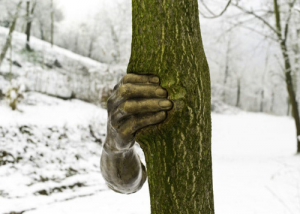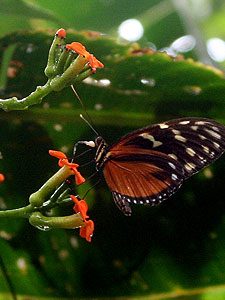This spring semester, if you are looking for some interesting perspectives on sustainability, the environment, and climate change, look no further! Log into SIS for more information,
VISC 130 ITAL-0092-01 Arte Povera and Post-WWII Sculpture in Italy: Nature, Energy, and Experience
Wednesdays, 9AM – 12PM, SMFA taught by Silvia Bottinelli
In 1967, critic Germano Celant coined the phrase “Arte Povera”. Such label defined the unsystematic work of a group of contemporary Italian artists that were interested in simple materials and their physical and chemical transformations. The word “povera”, literally “poor”, also meant to criticize Pop Art, interpreted as an acceptance of consumerism. Mainly through sculpture, installation, and performance, Arte Povera offered an alternative to the traditional mediums of Classical and Renaissance art.
The class will analyze Arte Povera’s history, reception, and context by considering theoretical, cultural, social, political, and gender issues in 1960s and 1970s Italy. The diverse perspectives of select Italian and English-speaking scholars will be taken into account.
VISC 160-01 Landscapes and Ecologies: 1500-2018
Fridays, 9AM – 12PM, SMFA taught by Emily Gephart
This class examines the origins of landscape as a subject through which ecological relationships have been given form. We will consider why it has been an enduringly popular topic, and look at how artists from the European Renaissance to the present day have explored space & place, home & environment, and transformational ideas about nature and human societies. Through trans-historical case studies, we will consider how landscape in art allowed artists to reckon with modernization and changing beliefs about the wilderness, rural space, urbanism, indigenous peoples and resources, and the complex entanglements that have come to define the Anthropocene.
DRW-0120-01 ADVANCED DRAWING – LARGE SCALE
Wednesdays, 2-5 PM and 9-12PM taught by Ethan Murrow
This is a class for students with a background in drawing, painting, print and installation based practices. It will offer opportunities for students to expand and consider the physical range of their drawings in relationship to scale, context, perception, place, space and the public. We will explore techniques and strategies for working at large scale, whether in traditional media or in more temporal installation based approaches.
GER 82/182 ILVS 82 ENV 82 Imagining the Environment: Cross-Cultural Perspectives
Mondays and Wednesdays, 3PM – 4:15 PM taught by Professor Markus Wilczek
Film / Literature / Music







Find Us On Social Media!